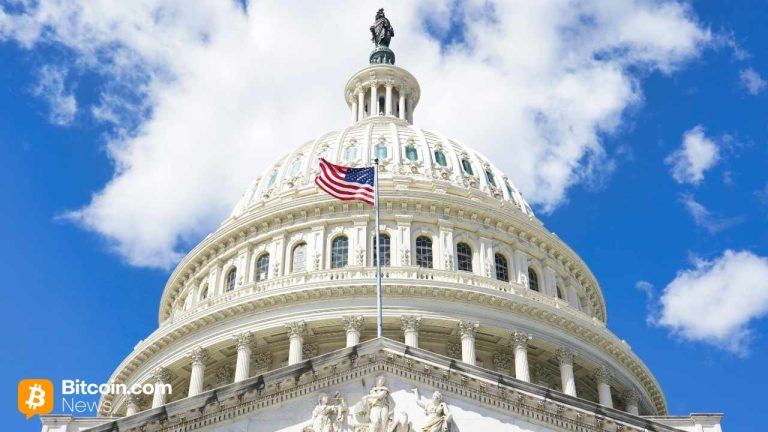Kevin O’Leary won’t rule out criminal charges for Binance

In an interview with Cointelegraph, Kevin O’Leary said he wouldn’t rule out the possibility of more serious charges against Binance and its CEO, Changpeng Zhao.
Kevin O’Leary said the Securities and Exchange Commission levied some “serious” allegations in the 136-page charging document the agency issued against Binance on June 5, telling Cointelegraph in an interview that he believes founder and CEO Changpeng Zhao is in a “tough” spot.
O’Leary, a venture capitalist and CNBC personality known more colorfully as “Mr. Wonderful,” was an investor in crypto exchange FTX prior to its November collapse, and has been open about losing $15 million from his gig as a paid spokesman for the company.
Some observers attribute FTX’s failure to a string of events that followed an exchange on Twitter between its 31-year-old founder and CEO, Sam Bankman-Fried, and Binance CEO Changpeng “CZ” Zhao — who briefly suggested, amid FTX’s collapse, that he was open to bailing the company out. But he quickly ruled out the possibility of making an offer, to Bankman-Fried’s chagrin — and, perhaps, to O’Leary’s bank account.
O’Leary nonetheless said he felt sympathy toward the 46-year-old CZ, whom the SEC has targeted with allegations that he mishandled customer funds by transferring them between entities he controlled — including north of $20 billion between Binance and a company called Merit Peak.
You won, @cz_binance.
There’s no need to lie, now, about the buyout.
We initiated conversations around buying you out, and we decided to do it because it was important for our business.
And while I was frustrated with your ’negotiation‘ tactics, I chose to still do it.
— SBF (@SBF_FTX) December 9, 2022
“They’re going after CZ personally,” O’Leary said. “That’s tough. I mean, you have to have a little compassion for him.”
Cointelegraph: What should investors make of this lawsuit? Is it going to cripple the market? Do regulators have a case?
Kevin O’Leary: If you think about why the crypto market is “stuck,” why it’s not advancing, it’s because there’s no new money coming into it. There’s no institutional capital. […] And so, when you see a constant flood of litigation against exchanges and charges by regulators — that just scares away institutional money.
I think everybody’s figured that out, in addition to the regulators themselves — and the legislators and the lawmakers. They’re tired of the rogue nature of this space. They’re sick and tired of holding hearings when the next guy blows up with $6 billion. Their constituencies are mad. They’re just tired of it.
There’s no emotional support at all on the Hill [for crypto] anymore, because when it was a nascent industry, there was a lot of promise — but now it’s just fraud, and now it’s just opaqueness and lack of transparency and allegations of commingling customer accounts and all of this stuff. This is taking crypto “Mr. Wonderful” three years, and so everybody’s tired of it. They want to change the page. We’re seeing this movie play out every few months now.
Related: The outcome of SBF’s prosecution could determine how the IRS treats your FTX losses
So, if finance is the last shoe to drop, so be it. Let’s get it over with, and we can start afresh. I think there’s a real tonality today within the institutional market about turning the page. If you have to sacrifice a few rogue operators, if these people are going to get charged and have to be litigated, so be it. I mean, we gotta move on.
CT: We’re seeing a lot of allegations against Binance similar to those against FTX in terms of manufacturing trading volume, encouraging VIP customers to bypass Know Your Customer requirements with VPNs, and transferring customer funds to the tune of $20 billion to another entity called Merit Peak. And its chief compliance officer even said at one point — according to the SEC — it was “operating as a fking unlicensed securities exchange in the USA.” What do you think are the odds of criminal charges coming out of this?
KO: It’s an unknown. But you’ve seen this movie before. Just last November, you saw this movie — they called it FTX Day. This is FTX II. I mean, I don’t know. Nobody knows. It’s all speculation, but these are serious charges, and there are a lot of them. If any of these allegations are true, that’s an extremely difficult place.
Plus, they’re going after CZ personally. That’s tough. I mean, you have to have a little compassion for him. He’s the founder of the world’s largest exchange. But I think he’s going to run out of oxygen in terms of just what jurisdictions are going to let him operate when the No. 1 regulator on Earth has made these allegations and filed these charges. This is not a good situation. There’s no good news here. I don’t know how anybody could make good news out of this.
CT: There are two components in the case. Obviously, one is the allegation of misconduct. The second is the more basic element required for the SEC to pursue a case — which is the idea that Binance is a broker-dealer and clearing agency for securities. To that end, it alleged that some big cryptocurrencies are securities, such as Cardano’s ADA, Solana’s SOL and Algorand’s ALGO. How do you feel about that and the future of anything other than Bitcoin and Ether? Would you invest in them at this point?
Related: Barry Silbert keeps quiet as Genesis goes down in flames
KO: Yes. It doesn’t change my investment thesis about crypto. In fact, this encourages me that we’ll get to an endpoint sooner in terms of getting regulation and getting the infrastructure to integrate it with the world’s financial services. I find this a very encouraging development because we’ve really got to turn the page. I’ve said it multiple times. But I’m an investor in Polygon. I’m an investor in Mysten [Labs] and [its token] Sui. I’m an investor in Bitcoin and Ethereum and many others.
I think the promise of modifying financial services is very intriguing and has great potential. I’m an investor in Circle and a user of it. These are all good advancements. What’s holding us back are the rogue operators and all of these allegations of lack of transparency. […] These charges, to be honest with you — this is getting boring. I mean, it’s just getting boring.
I’m tired of it. I think most institutional investors are tired of it. It’s just boring, and I’d like to see something else now. And so, if we have to sacrifice a few pioneers, who cares? I mean, it’s not like they didn’t see this coming. I mean, it’s obvious what’s happening here. And I think, at this point, let’s move on.
CT: Do you see any daylight between the SEC’s case against Coinbase and its case against Binance?
KO: The charges are different. Coinbase has a different situation. It’s a public company. Its market cap was decimated [by the SEC suit], and the management there seems to want to keep taking on the SEC over and over and over again.
I would think at this point, if you’re a shareholder in that company, you may want to make some changes. I don’t think this is working as a strategy. […] I am not optimistic for the management team there.
I think the winds of change are gonna blow through that boardroom, and probably that’s a good thing. I think investors are done with this. There comes a point where you just have to realize you’re banging your head against a brick wall and you’ve got to resolve your issues with your regulator. You can’t keep doing this over and over and over again. The definition of madness is doing the same thing over and over and over again and expecting a different outcome. At this point, I think it’s over for them too.
I think we should thank the founders of that company. They were pioneers, but they clearly don’t have the maturity or skill set to operate in a regulated environment. […] I think at this point, they’re gonna have to work something out.
CT: Do you think there’s room after this for FTX to make a return to polite society, or to come out lookin more ’normal‘?
KO: Well, the narrative on FTX is that it’s in the recovery phase. Allegedly, there’s $7.2 billion of the $8 billion [that’s] been found. That’s very encouraging. And so I would think we would want to go through the process of distributing that to the shareholders and the account holders and everything else.
KO: I think, you know, the question of the allegations of that the comingling of the equity that was brought up in the Senate hearings … the speculation — and I’m one of the people that speculated it — did Binance intentionally bankrupt FTX by stripping their balance sheet of $2 billion in U.S. cash and 580 million in FTT tokens to put their competitor out of business so they could be the global monopoly? That’s one scenario. Who knows if it’s true? But I guess in impressing these charges and going into discovery, we’re gonna learn a lot.
But again, it’s the past. I mean, the, you gotta think about, OK, this is gonna go on and whatever happens, the finance happens, but it’s not the future. That’s not the future. The future has great promise. I’m gonna start investing in regulated exchanges all around the world because all of these accounts are gonna have to go somewhere and they’re going to want to go to a place where they’re allowed to exist without being constantly threatened by regulators.
I’ve already invested in WonderFi up in Canada, that’s Bitbuy. I’m looking at a deal in Abu Dhabi. I’m looking in London. There are lots of regulated exchanges that never had a chance to make money because they were being beaten up by global behemoths that had no rules and no regulation and no cost of compliance. That’s now shifting. I think it’s gonna be interesting. I think you’re gonna see, in 24 months, the value of these exchanges start to go up.
This interview was condensed for length and clarity.





